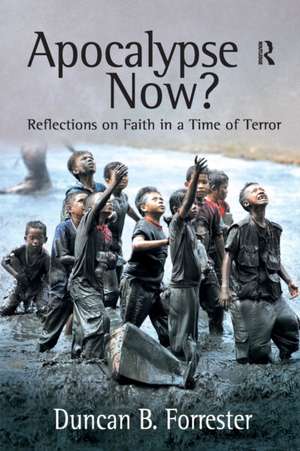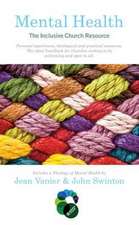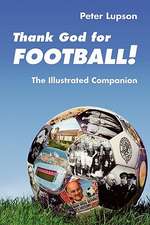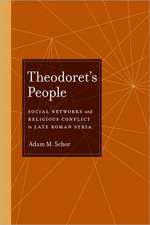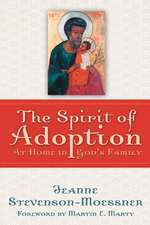Apocalypse Now?: Reflections on Faith in a Time of Terror
Autor Duncan B. Forresteren Limba Engleză Paperback – 28 oct 2005
Preț: 379.81 lei
Nou
Puncte Express: 570
Preț estimativ în valută:
72.68€ • 76.04$ • 60.37£
72.68€ • 76.04$ • 60.37£
Carte tipărită la comandă
Livrare economică 03-17 aprilie
Preluare comenzi: 021 569.72.76
Specificații
ISBN-13: 9780754652731
ISBN-10: 0754652734
Pagini: 152
Dimensiuni: 156 x 234 x 8 mm
Greutate: 0.23 kg
Ediția:Revised edition
Editura: Taylor & Francis
Colecția Routledge
Locul publicării:Oxford, United Kingdom
ISBN-10: 0754652734
Pagini: 152
Dimensiuni: 156 x 234 x 8 mm
Greutate: 0.23 kg
Ediția:Revised edition
Editura: Taylor & Francis
Colecția Routledge
Locul publicării:Oxford, United Kingdom
Cuprins
Contents: Foreword; Prologue: Two 'terrible manifestos'?; Vexed by a rocking cradle; Things fall apart: the long, bloody 20th century; After the Cold War: the end of ideology?; The public voice of resurgent religion; The rebirth of apocalyptic; Conflicting virtues: saints or heroes?; Virtues in conflict; Just war and just peacemaking; Epilogue: forgiveness and reconciliation; Postscript: Tsunami now?; Bibliography; Index.
Recenzii
'This challenging book covers such atrocities as the Gulag, 9/11, the Iraq War and the Asian tsunami, and suggests that we live in an apocalyptic age similar to that in which Christianity was born. As such, it is a highly relevant read for those seeking answers to today's world issues.' Publishing News ’As an Anglican Reader who has to preach regularly, and also as the mother of a daughter living and working in Israel/Palestine, I want to say first that I found Duncan Forrester's book personally helpful, informative and deeply sensitive to the heart of what Christianity has to offers in a 'time of terror'... The style is always careful and measured; it becomes increasingly passionate as the book goes on... This is an excellent book by an academic theologian and a Christian committed to justice, peace and reconciliation. The book takes a wide view of the contemporary scene and of the tradition although it is not generated from specific activist involvement in a particular context.’ Theology ’Moving between two times of terror - the early Centuries of Christianity, and today - the author asks how religious motivations can play a positive role in the midst of conflicts and disasters. Reading the 'signs of the times' to try to understand what is happening in today's age of terror, Forrester argues that there are huge resources in the Christian tradition that can be productively deployed for a more constructive and faithful response.’ Theological Book Review
Notă biografică
As a Church of Scotland missionary Duncan Forrester taught Politics at Madras Christian College for eight years. After a period as Chaplain and Lecturer in Politics and Religious Studies at the University of Sussex, he was appointed in 1978 to the Chair of Christian Ethics and Practical Theology in New College, University of Edinburgh. He was Principal of New College from 1986-1996, and Dean of the Faculty of Divinity from 1996-2000. He established and was first Director of the Centre for Theology and Public Issues. In session 2000-2001 he held a Personal Chair in Theology and Public Issues in Edinburgh University. He is now Emeritus Professor. His recent publications include The True Church and Morality: Reflections on Ecclesiology and Ethics (WCC, 1997), Christian Justice and Public Policy (Cambridge University Press, 1997), Truthful Action: Explorations in Practical Theology (T. & T. Clark, 2000) and On Human Worth: A Christian Vindication of Equality (SCM Press, 2001).
Descriere
In Apocalypse Now?, Duncan Forrester argues that disorders and atrocities including the Gulag, the Holocaust, 9/11, the Afghanistan and Iraq wars, and the Tsunami disaster have shown us that we stand in the midst of an apocalyptic age of terror with striking similarities to the time in which Christianity was born. He asks how religious ideas can play a positive role in the midst of conflicts and disasters and argues that there are huge resources in the Christian tradition that can be productively deployed for a constructive and faithful response.
